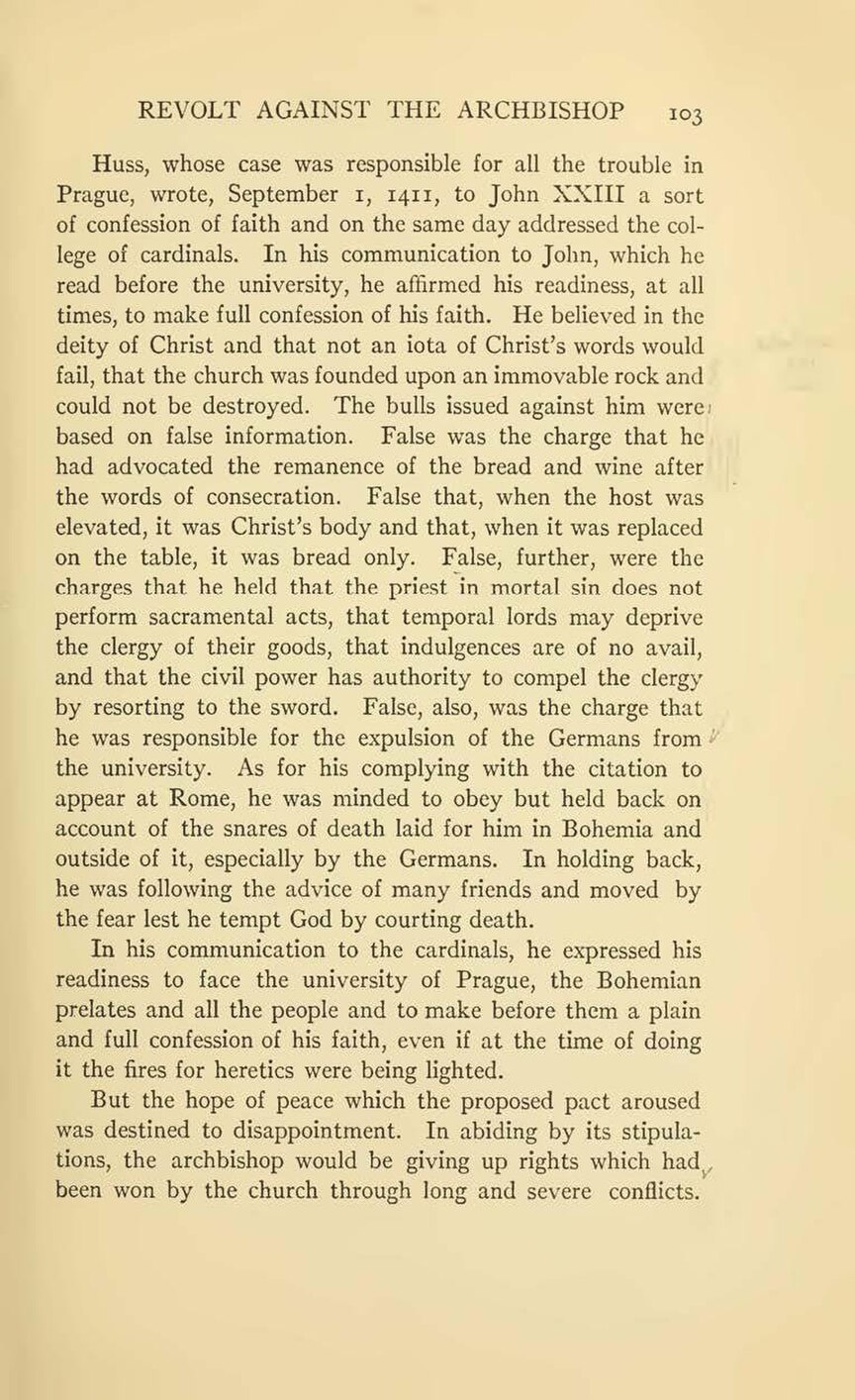Huss, whose case was responsible for all the trouble in Prague, wrote, September 1, 1411, to John XXIII a sort of confession of faith and on the same day addressed the college of cardinals. In his communication to John, which he read before the university, he affirmed his readiness, at all times, to make full confession of his faith. He believed in the deity of Christ and that not an iota of Christ’s words would fail, that the church was founded upon an immovable rock and could not be destroyed. The bulls issued against him were based on false information. False was the charge that he had advocated the remanence of the bread and wine after the words of consecration. False that, when the host was elevated, it was Christ’s body and that, when it was replaced on the table, it was bread only. False, further, were the charges that he held that the priest in mortal sin does not perform sacramental acts, that temporal lords may deprive the clergy of their goods, that indulgences are of no avail, and that the civil power has authority to compel the clergy by resorting to the sword. False, also, was the charge that he was responsible for the expulsion of the Germans from the university. As for his complying with the citation to appear at Rome, he was minded to obey but held back on account of the snares of death laid for him in Bohemia and outside of it, especially by the Germans. In holding back, he was following the advice of many friends and moved by the fear lest he tempt God by courting death.
In his communication to the cardinals, he expressed his readiness to face the university of Prague, the Bohemian prelates and all the people and to make before them a plain and full confession of his faith, even if at the time of doing it the fires for heretics were being lighted.
But the hope of peace which the proposed pact aroused was destined to disappointment. In abiding by its stipulations, the archbishop would be giving up rights which had been won by the church through long and severe conflicts.
